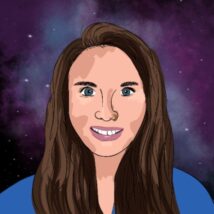
Maria Temming
Assistant Managing Editor, Science News Explores
Maria Temming is the Assistant Managing Editor at Science News Explores. Maria has undergraduate degrees in physics and English from Elon University and a master's degree in science writing from MIT. She has written for Scientific American, Sky & Telescope and NOVA Next. She’s also a former staff writer at Science News.

All Stories by Maria Temming
-
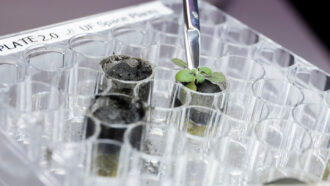 Space
SpaceThe first plants ever grown in moon dirt have sprouted
This tiny garden shows farming on the moon may be difficult, although not impossible.
-
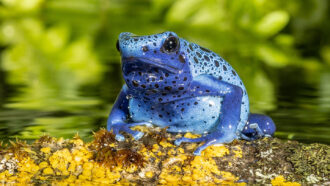 Animals
AnimalsLet’s learn about amphibians
Amphibians are named after the Greek word for “double life” because many transform from water dwellers to landlubbers as they grow up.
-
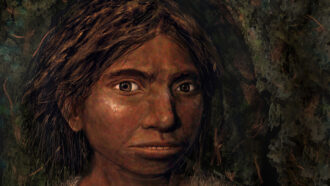 Humans
HumansScientists Say: Denisovan
The Denisovans were a recently discovered population of ancient hominids.
-
 Physics
PhysicsScientists Say: Inertia
Inertia is the tendency of objects to resist changes in their motion.
-
 Humans
HumansLet’s learn about sleep
Sleep is key for health and wellbeing — but early school start times and screen time make it harder for teens to get shuteye.
-
 Materials Science
Materials ScienceScientists Say: Silicone
Silicone is a generic term for a whole slew of humanmade polymers with many different forms and applications.
-
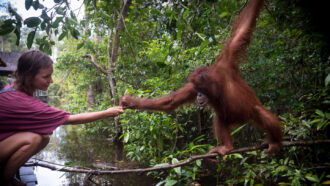 Animals
AnimalsScientists Say: Primate
Primates are mammals that tend to have big brains, forward-facing vision, fingernails and flexible hands and feet.
-
 Brain
BrainScientists Say: Stereoscopy
Stereoscopy allows the brain to perceive the two 2-D images seen by the eyes as a 3-D scene.
-
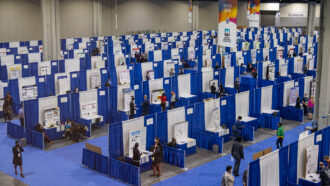 Science & Society
Science & SocietyA major science fair set these scientists on the path to STEM success
Alumni of the International Science and Engineering Fair talk challenges and payoffs of competitive science.
-
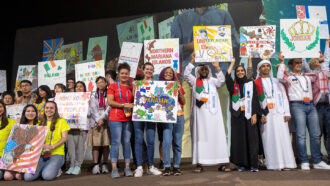 Science & Society
Science & SocietyWhat it’s like to compete in the science fair ‘Olympics’
Four recent alumni of the Regeneron International Science and Engineering Fair share their experiences.
-
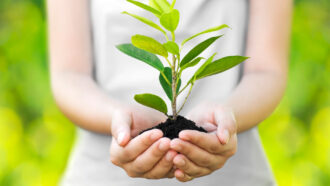 Chemistry
ChemistryLet’s learn about cellulose
The world’s most abundant natural polymer is finding all kinds of new uses, in everything from ice cream to construction.
-
 Math
MathScientists Say: Variable
A variable is something that can be changed — such as a value in math, or a factor in an experiment.